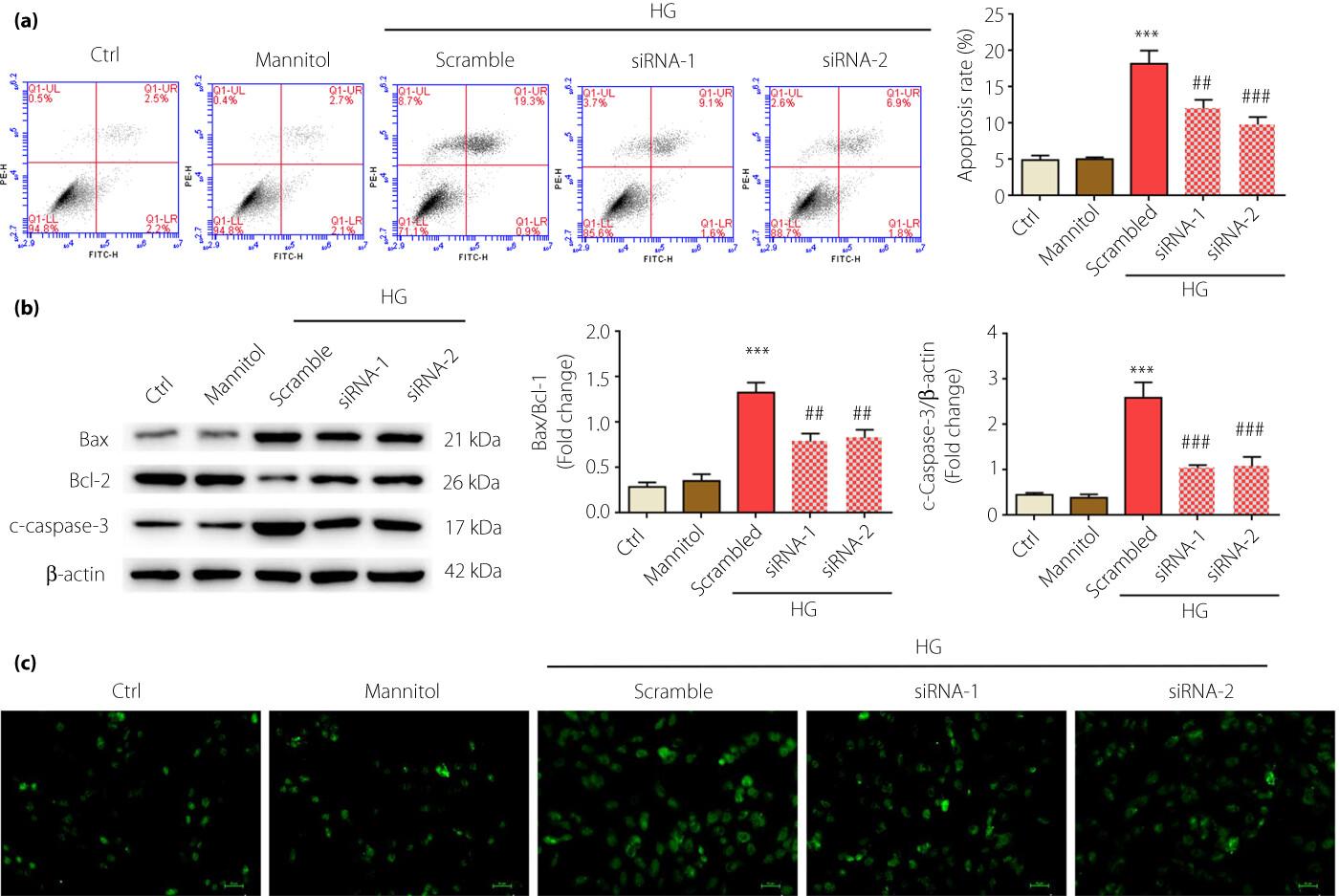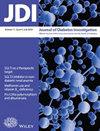BASP1 promotes high glucose-induced endothelial apoptosis in diabetes via activation of EGFR signaling
Abstract
Aims
Diabetes mellitus is a common chronic disease of glucose metabolism. Endothelial dysfunction is an early event in diabetes complicated by cardiovascular disease. This study aimed to reveal the expression of BASP1 and its biological roles in endothelial cell dysfunction in diabetes complicated by cardiovascular disease.
Materials and Methods
By analyzing the databases related to diabetes complicated with coronary heart disease, BASP1 was screened out as an upregulated gene. Human umbilical vein endothelial cells (HUVECs) and primary mouse aortic endothelial cells were treated with high glucose to establish cell models of diabetes-related endothelial dysfunction, and the expression changes of BASP1 were verified by RT-qPCR, western blot, and immunofluorescence. BASP1 was silenced or overexpressed by siRNA or overexpression plasmid, and its effects on cell migration, apoptosis, tube formation, inflammatory response, and ROS were detected. The possible signaling pathway of BASP1 was found and the mechanism of BASP1 on promoting the progression of endothelial dysfunction was explored using the EGFR inhibitor, gefitinib.
Results
Bioinformatics analysis indicated that the expression of BASP1 in patients with diabetes mellitus and concomitant coronary heart disease was increased. High glucose induced the upregulation of BASP1 expression in endothelial cells, and showed a time-dependent relationship. Silencing of BASP1 alleviated the damage of high glucose to endothelial cells. BASP1 regulated EGFR positively. The promoting effect of BASP1 on endothelial cell apoptosis may be achieved by regulating the EGFR pathway.
Conclusion
BASP1 promotes endothelial cell injury induced by high glucose in patients with diabetes, which may be activated by activating the EGFR pathway.


 求助内容:
求助内容: 应助结果提醒方式:
应助结果提醒方式:


